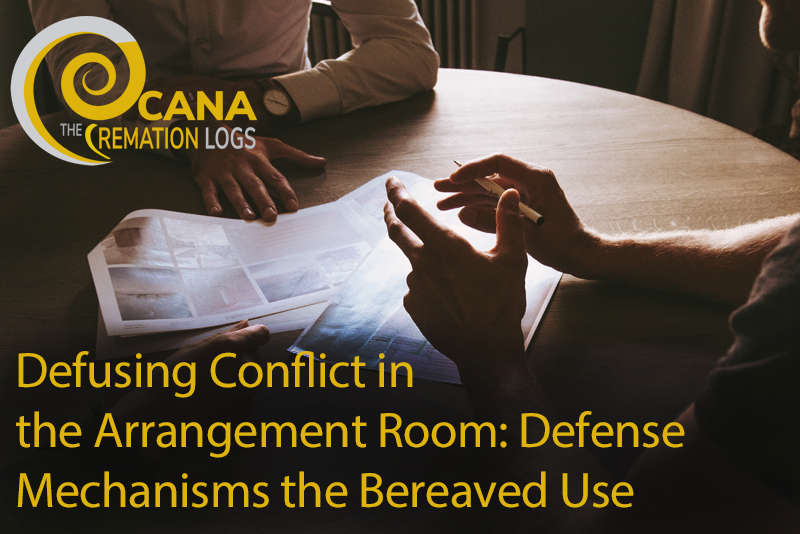3 Reasons Why the Bereaved Unfairly Attack Funeral Professionals
Arguing. Fighting. Physical violence. Destruction of property. Extreme denial. Some of funeral professionals most difficult challenges can be extreme behaviors in the arrangement room. Not only are the stories jaw-dropping, but they seem to be getting worse and more common over the years. In the face of anger and rudeness, it can be difficult to generate empathy for the bereaved, but we may be able to be more patient and gracious if we understand what is causing these
behaviors.
Defense Mechanisms
Sigmund Freud said all people use defense mechanisms to reduce anxiety or mental discomfort. Most of the time, these defense mechanisms are relatively normal and healthy; they only become problematic when they are used in extreme ways. For example, “denial” is one of the most commonly used defense mechanisms. A common experience of denial related to bereavement is when you reach for your phone to call a loved one, only to quickly remember they are deceased. There’s absolutely nothing abnormal or pathological about this – our brains are simply used to them being alive and it takes a moment for that reality to reappear. On the other end of the continuum of denial is an extreme reaction. For example, when the police find that a family still has grandpa sitting at the dining room table – eight months after he died. All defense mechanisms can be viewed on a continuum; mild and common uses of reducing anxiety and pain or extreme situations when the individual’s reaction is much more dramatic and often pathological.
Displacement
Like denial, displacement is a very commonly used defense mechanism. Displacement is when we take the angry or aggressive impulses toward one person and “displace” them on another, usually safer, target. For example, let’s say your boss yells at you and it makes you angry. You realize that it isn’t smart to strike back at your boss, so you go home and yell at your spouse, yell at your kids, or kick the dog as a way to displace your anger onto a ‘safer’ target. (I fully realize
that getting angry at your spouse may not be a “safer” target – this is just an example. Also, don’t kick dogs.)
Projection
Have you ever had someone accuse you of only caring about money? A second defense mechanism, projection, might be a part of their response. Projection is the process of taking our own feelings and thoughts that make us uncomfortable and then dealing with them by projecting them onto someone else. A common example of projection is when we deal with our own self-hate by projecting that view onto others. Projection takes “I don’t like myself” and turns it into, “He/She hates me for no reason” or “Everybody hates me.” It reduces our anxiety and negative self-worth to suggest it is coming from others, not from oneself.
In the Arrangement Room
While many other defense mechanisms come into play, these appear frequently in the arrangement room with families. CANA’s latest blog post from renowned grief psychologist Dr. Jason Troyer covers Defusing Conflict in the Arrangement Room: Defense Mechanisms the Bereaved Use. Read on to learn about other defense mechanisms and the most common way they can appear in the arrangement room.

Then, Dr. Troyer takes the stage at CANA’s 101 st Annual Cremation Innovation Convention with strategies therapists use to defuse these kinds of conflicts. He will review how funeral professionals can better understand the conflict that sometimes arises in the arrangement process as well as strategies funeral professionals can use to defuse these situations.
We hope to see you there!
About CANA
Founded in 1913, the Cremation Association of North America (CANA) is an international organization of over 3,300 members, composed of funeral homes, cemeteries, crematories, industry suppliers, and consultants. CANA members believe that cremation is preparation for memorialization.
About Dr. Jason Troyer
Dr. Jason Troyer is a grief expert, author, former psychology professor, and therapist. He provides grief support newsletters, Facebook content, and informational videos at www.GriefPlan.com/funeral. He also provides community presentations, professional workshops, and trainings on behalf of funeral homes and cemeteries. Dr. Troyer can be reached at DrJasonTroyer@gmail.com. You can read his blog post about defusing conflict in the arrangement room in The CANA Cremation Logs.




